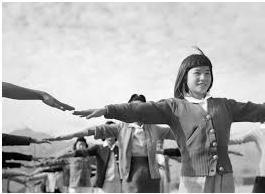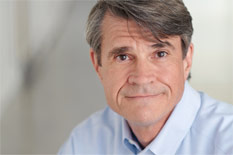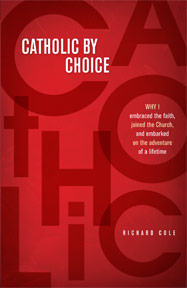As I’ve said elsewhere, one of the blessings of Catholicism is a really long bookshelf.
Some of the books listed below are more well known than others. All are definitely worth reading at least once. And all are worth approaching with faith (that it’s worth reading ), hope (that it can change us for the better) and charity (that we open our minds and hearts to what the book can teach us).
Merton’s Palace of Nowhere by James Finley. An excellent overview of Thomas Merton’s ideas about contemplation and the letting go of the false self. Finley was a novitiate at Gethsemani who studied with Merton, a Trappist monk who authored The Seven Story Mountain, dozens of other books and became one of the most recognized Catholic writers of his generation.
Morality: The Catholic View by Servais Pinckaers. A positive, Thomist approach based on the classical idea that we want to be virtuous because we want to be happy. Pinckaers’ work is a wonderful argument against the position that morality, and Catholic morality in particular, is limited to a list of obligations and prohibitions.
Mother Theresa: Come Be My Light. Her private writings that show a soul who never lost faith but endured a dark night for decades.
Gilead and Home by Marilynne Robinson. The author, who happens to be a Calvinist, writes novels that are dazzling in their ability to present characters who live fully and naturally in their Christian faith.
Open Mind, Open Heart by Father Thomas Keating. A Trappist monk and former abbot, Keating has helped revive and strengthen the Catholic contemplative tradition. He’s written a number of books. This can serve as an introduction to centering and contemplative prayer.
Five Great Catholic Ideas by Fr. Edward Clark. Excellent. Helps explain what it means to “think like a Catholic.”
The Sanctifier by Archbishop Luis Martinez. Talks about the Holy Spirit in the context of the Trinity, how we can move by the Holy Spirit to the Son and then to the Father. A wonderful book with a truly poetic vision of God.
The Rule of St. Benedict. Written by the saint in the sixth century for monastic communities, this short book of precepts has been used by many other communities and individuals as a guide for living a Christian life. Wise, practical, and balanced.
The Cloister Walk and Amazing Grace by Kathleen Norris. Describes her conversion, the monastic life, problems of modern faith, prayer, idolatry and many other things.
Traveling Mercies by Anne Lamott. Another conversion story. Both reverent and irreverent. Very funny and candid.
Autobiography by St. Teresa of Avila. Anything by this great saint is worth reading. An amazing marriage of the sublime and the down-to-earth.
Story of a Soul: The Autobiography of St. Thérèse of Lisieux. One of my favorite saints. The Little Way of Saint Thérèse of Lisieux: Into the Arms of Love by John Nelson is a brief but well-chosen anthology of her writings.
Waiting for God by Simone Weil. A collection of writings by a brilliant twentieth century philosopher who was never confirmed as a Catholic but spent her life on the threshold of the church.
The Essence of Prayer by Ruth Burrows. One of the best books I’ve ever seen on this subject. Profound. Very austere. Very Carmelite. I’d also recommend her Guidelines to Mystical Prayer.
Thomas Aquinas, Theologian by Thomas O’Meara, OP. Absolutely stunning, presents Aquinas who used the scholastic philosophy more as a “scaffolding” for what was essentially a mystical understanding of God, humanity and the universe.
The Prodigal Son by Henri Nouwen. Anything by this teacher and priest is worth reading. Go to him if you’re looking for a definition of Christian love.
Twilight of Atheism by Alister McGrath. He argues that the Enlightenment has really been only a kind of odd, often bloody, detour that came to an end, at least symbolically, with the fall of the Berlin Wall. Encouraging.
The Imitation of Christ by Thomas á Kempis. One of those books I’d want on a desert island. Read this book; it will make you strong.
 As Christians, we have a physical faith, and that physical faith connects us to the world, to each other and to God. Somebody once asked Mother Theresa if she preached the word of Christ to the poor and sick people she helped in Calcutta. She said, “My job is not to preach Christ; my job is to be Christ.” I once looked up “callisthenic” in the dictionary. It comes from two Greek words meaning strong and beautiful, and I thought, hey, Catholicism is very callisthenic. We arrive at Mass, we cross ourselves, we sit, we stand, we sit again, we kneel, stand, kneel stand. Mass is a workout, physical as it should be, as it has to be, and as we go through these motions, these calisthenics, we can indeed become more strong and beautiful through the love of God. Even the last part of Mass, the send-off, is about something to do — go out into the world and share the Word and help one another. It’s like in the Bible. When people encounter God, they take some action, and it usually involves travel. Abraham, Moses, Mary, the apostles, Paul. It’s all the same — see God, hit the road.
As Christians, we have a physical faith, and that physical faith connects us to the world, to each other and to God. Somebody once asked Mother Theresa if she preached the word of Christ to the poor and sick people she helped in Calcutta. She said, “My job is not to preach Christ; my job is to be Christ.” I once looked up “callisthenic” in the dictionary. It comes from two Greek words meaning strong and beautiful, and I thought, hey, Catholicism is very callisthenic. We arrive at Mass, we cross ourselves, we sit, we stand, we sit again, we kneel, stand, kneel stand. Mass is a workout, physical as it should be, as it has to be, and as we go through these motions, these calisthenics, we can indeed become more strong and beautiful through the love of God. Even the last part of Mass, the send-off, is about something to do — go out into the world and share the Word and help one another. It’s like in the Bible. When people encounter God, they take some action, and it usually involves travel. Abraham, Moses, Mary, the apostles, Paul. It’s all the same — see God, hit the road. 
